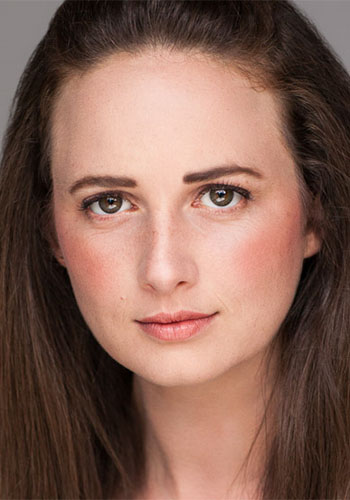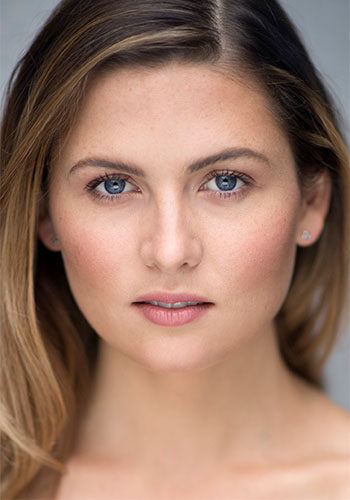
Lana Kershaw
Gemma Scoble: What is freedom?
Lana Kershaw: Freedom comes in degrees, and I think it’s often invisible to those who have it. In Egypt, my father’s homeland, repressive laws impact on freedoms relating to religion, sexual preference, and gender-based power. As a result of this, a number of our extended family came to Australia as refugees in the early 2000’s. Grateful for the freedom to make choices about how they lived their lives without fear of imprisonment or physical harm, there was still a sense of disempowerment that came with having to leave their home. Having freedom is not always exactly the same as having power. And when freedom is reduced to language, it can become a passively oppressive force, allowing us to turn a blind eye to discrimination present in our own society. When ‘freedom’ becomes a defence for hate speech, it becomes actively oppressive. So I think it’s a loaded term.
What space would you like to claim as an artist?
I would like to occupy the gaps and silences in our social narratives, to glory in the spaces we avoid, gloss over, or pretend not to see. I’d like the ideas I explore through my art to resonate, to disrupt the comfortable spaces. Ultimately, I think art is such a paradox; simultaneously transient and immortal. In a temporal sense, it’s such a gift to be able to claim a finite space of time with those who come to share in a performance. But there’s always the hope that the experience of that performance will be retained, relived, reconstructed and remembered. That the expansive realm of the subconscious will take the work and find a space to make sense of it, and reflect on its purpose and relevance. So I guess I want to climb inside you and jump around a little bit.
Have you worked with the Leftovers Collective before?
Yes. We collaborated together on Encounter My Heart. I love that the collective trust in the artistry of their performers, and that there’s no fear in raising questions we don’t have the answers to. The Leftovers celebrate such a wide diversity of experiences, both in relation to the artists and the audience, and it’s exciting to be working together again.
Do you believe in the power of words, or is it just sounds at the end of the day?
The only language my parents shared was English, and so that ended up being the language I speak. When I was a kid, I used to sit on my dad’s lap with my ear against his chest. I’d listen to him speaking
Arabic with his friends, and it never occurred to me that he was saying words. I listened to it as a
musical arrangement that echoed in his chest and often lulled me to sleep. I still find immense
comfort in listening to my family conversing in Arabic, though I don’t understand what they’re
saying. Words need context to have meaning, and a shared one at that. Give them context, and they
can tear holes in your flesh.
If you could add a word to any language what would it be and what would it mean?
Etialiseh: it would be a universal word with a flexible meaning, used to express feelings not able to
be adequately expressed by language.

Gemma Scoble
Lana Kershaw: How did you become involved with The Leftovers Collective?
Gemma Scoble: I auditioned for the Leftovers Collective this year when they held general auditions. It was the most open, accessible and freeing audition I’ve had. I left feeling genuinely inspired and empowered by my own creativity. I jumped when they asked if I wanted to be a part of Don’t Go To This Show. I also know Curly from working with ATYP and quite simply have the highest opinion of him as
director and a human.
What weren’t you allowed to do as a kid that would have changed your world?
My mum wasn’t really strict on us a kids so I was allowed to do most things – with the exception of
The Simpsons – I remember that being turned off a lot, not because of the swearing or content but because it was “American” and not made in Australia (turns out Mum was an early advocate of
homegrown content – she also bought us Australian Monopoly which always confuses me now
when I play other editions. I just know the dark blue is what you want.) I’d say the thing that would’ve really changed my world as a kid in a big way would’ve been moving to a bigger city. I’m from Townsville which is a great place to grow up for many reasons, but the arts industry is definitely larger in Brisbane or Sydney. I had dreams of running away as a kid to “make it in the big smoke”. So probably that.
Clean or dirty, which is better?
Dirty. I used to be a clean freak but now I think a little bit of chaos and imperfection is useful and
it’s fun.
There’s a saying that “He who controls language controls the world”. What are your thoughts?
I’m reluctant to bring up Trump any more than is necessary, but I do think we’ve recently seen an
example of how powerful language and narrative can be. And it doesn’t even need to be true.
Without using the words “and, the, but, I, a” can you describe your vision for the future?
Hearts full of empathy + compassion. Fear combated with love.
Catch Lana Kershaw and Gemma Scoble in Don’t Go To This Show.
Dates: 25 – 26 Nov, 2017
Venue: Yellow Umbrella, Potts Point
 Venue: Yellow Umbrella (Potts Point NSW), Sep 13 – 22, 2018
Venue: Yellow Umbrella (Potts Point NSW), Sep 13 – 22, 2018




 Venue: Yellow Umbrella (Potts Point NSW), Nov 25 – 26, 2017
Venue: Yellow Umbrella (Potts Point NSW), Nov 25 – 26, 2017
